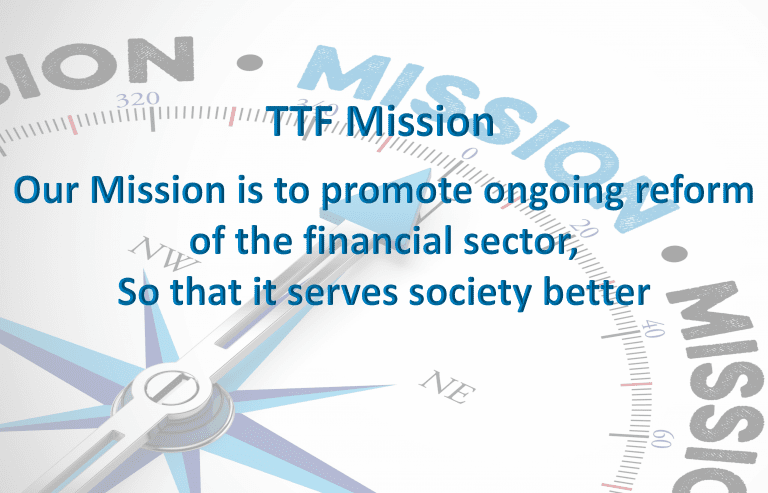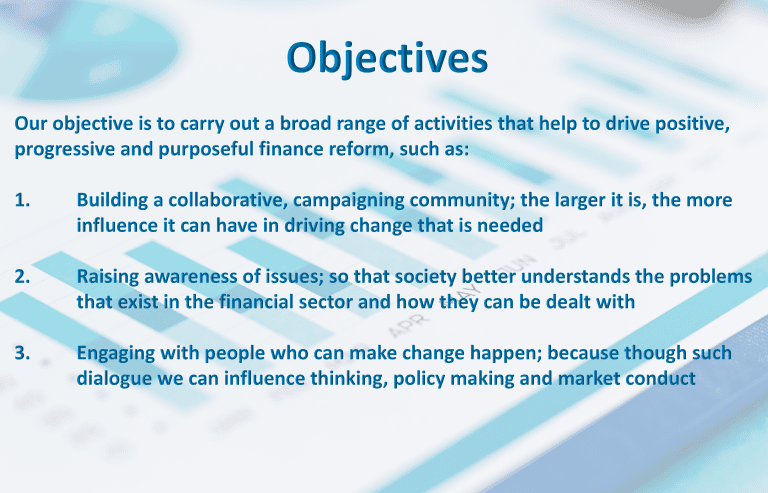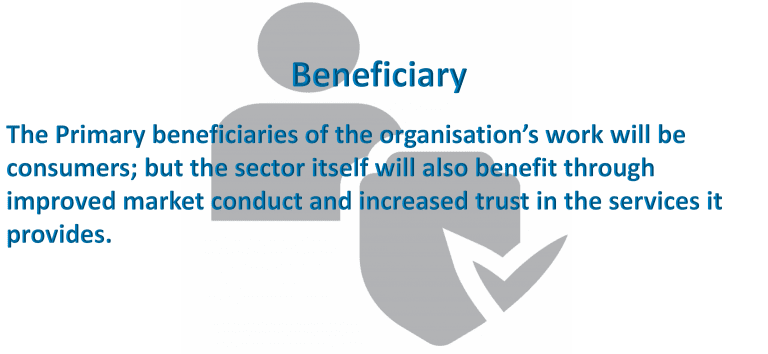Our Mission is to
Promote ongoing reform of the financial sector
so that it serves society better

The BBC Panorama Documentary featuring the Transparency Task Force
An important BBC Panorama programme aired in August 2022. It took a deep dive into the Financial Conduct Authority and its failure to provide an appropriate degree of consumer protection, despite that being one of the objectives set for it by Parliament.
You can watch the BBC Panorama documentary here

The Transparency Task Force
is a collaborative, campaigning, international community, dedicated to driving up the levels of transparency in financial services.
The Transparency Task Force is built on 5 core beliefs:
- The Financial Services sector is profoundly important to the well-being of society, to economic stability and political stability too
- The Financial Services sector has a moral, ethical and professional duty to behave transparently
- There is a strong correlation between transparency, truthfulness and trustworthiness
- That the vast majority of people working in the sector want it to change for the better
- That small groups of right-minded and collaboratively-minded people who are united by a common cause can drive positive change



Donations
"Not everything that is faced can be changed, but nothing can be changed until it is faced" - James Baldwin

TTF and the RSA
TTF members can become a Fellow of the global RSA network, dedicated to making change happen.
Trustworthiness has been damaged
Many Governments want to transfer risk from the State to the individual (e.g. retirement provision, healthcare provision) yet the industry that is meant to facilitate this isn't readily trusted.
Perhaps this helps to explain why the UK is currently experiencing a record-breaking low in its savings ratio; the worst since 1963. That’s not good news. In fact, it’s a real worry with short and long-term implications.
An entire generation may retire on lower levels of income than the generations before them. Might they feel cheated by the system as a whole and the once-trusted institutions? There may be many people too old to work but too poor to retire, while youngsters are unable to find work because their seniors are still working to generate income? In a ‘worst case’ scenario perhaps there will be adverse effects on the fabric of society, intergenerational tensions, in extremis, civil unrest?
Is the world’s pensions crisis the very worst manifestation of the lack of trust in financial services?
The Sector’s reputation and therefore trustworthiness has been damaged by numerous scandals and incidents of malpractice – perpetrated by rogue individuals ( Maxwell, Madoff et al) or dodgy behaviour in organisations (Equitable Life, Wells Fargo etc.) or entire parts of the market (endowment mortgages, transfers out of Defined Benefit pension schemes, PPI, etc) – and even complete market collapses that have led to austerity for innocent people.
It could be argued that the public have, in effect, been educated to NOT trust financial services through the unremitting drip, drip of untrustworthy behaviour.
The vast input of money by Governments ( taxpayers) on regulation, compliance and enforcement have failed to improve confidence in the Financial Services Sector, which behaves no better now than it did twenty, thirty or forty years ago..This is nothing less than a serious, systemic risk for society as a whole.
This is why TTF is working to improve regulation and enforcement and put the sector in a position of trust and positive societal contribution.
Those within the Sector, who understand the profound importance of its trustworthiness, who care about achieving good, fair and sustainable outcomes for the people it serves, should strive together to rebuild the trust that’s been lost.
We should ‘stand up, not stand by’.
We can’t make people trust us. All we can do is to collectively behave in a consistently, reliably and predictably trustworthy way. And what can help to do that? Being transparent.
Transparency is important to rebuilding trust.
Transparency is both a cultural and a commercial virtue.
That’s why transparency can drive transformational change.
Wild variables
There are so many 'wild variables' that nobody can be sure how all this will all play out. Nobody knows how society is going to respond to the financial stresses and strains it is likely to be experiencing in years to come
especially given the worryingly high levels of consumer debt and the likelihood of disappointment for many people from their Defined Contribution pension schemes that they may have started too late, contributed too little into, been invested in expensive funds with high and sometimes even hidden costs and charges.
And then there are the millions of people to worry about who aren’t making any provision for old age at all.
Whilst these issues are terribly complex and multi-faceted there’s one point that is as simple, straightforward and indubitable as can be – that it would be good if the Financial Services industry was predisposed to behave in a more trustworthy way.
But the harsh reality is that once trust has been lost it is far, far harder to regain than it would have been to have kept on being trusted in the first place. So, those of us that understand the profound importance of having a trustworthy Financial Services sector, who care about helping to achieve good, fair and sustainable outcomes for the people it is supposed to serve, ought to do all we can, together, to rebuild the trust that’s been lost. We should ‘stand up, not stand by’.
However, we can’t make people trust us. All we can do is to collectively behave in a consistently, reliably and predictably trustworthy way. And what can help to do that? – being transparent.
Transparency is important to rebuilding trust.
Transparency is both a cultural and a commercial virtue.
That’s why transparency can drive transformational change.
And that’s why we are fast-building our community and sending out a message to everybody and anybody tat if they care about repairing the terribly tarnished reputation of the financial services sector and want to help consumers get better outcomes they should join up – there is no cost or commitment in getting involved.

Trust and Reform
The Financial Services sector is profoundly important to the well-being of society but for it to achieve its true potential as a positive, enabling, securing, supporting force it must be trusted.
Trust is absolutely vital to financial services because the sector works with intangible offerings that are often future-orientated. Products, services and solutions are often based on intent, a promise to deliver, an expectation, a hoped-for outcome.
The promissory clause printed on banknotes states “I promise to pay the bearer the sum”, and the entire financial services industry is by definition dependent on trust.
